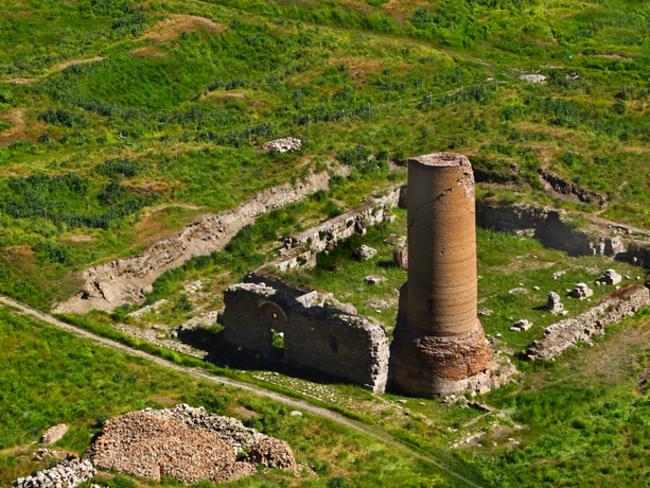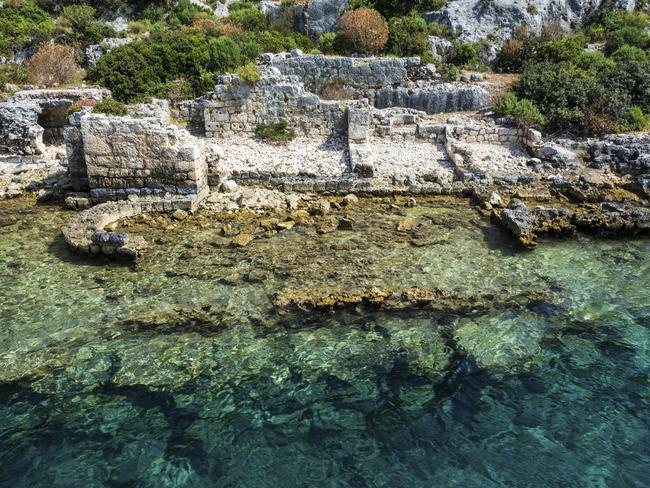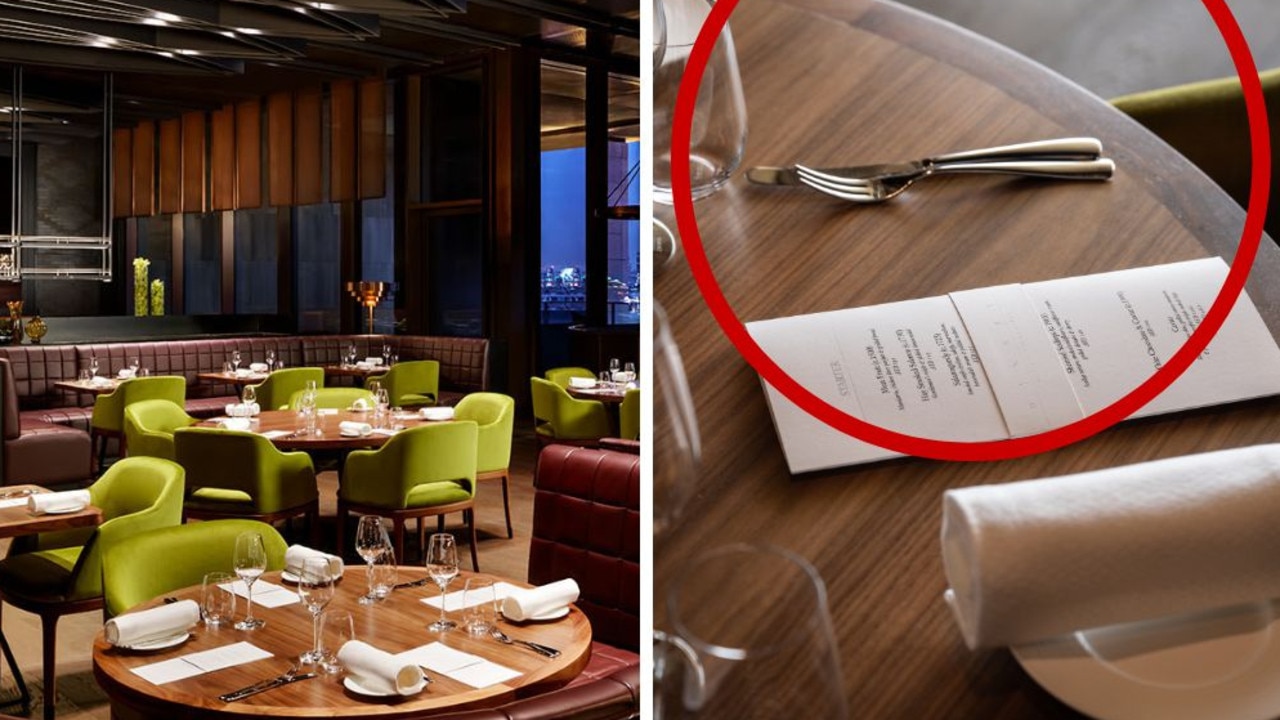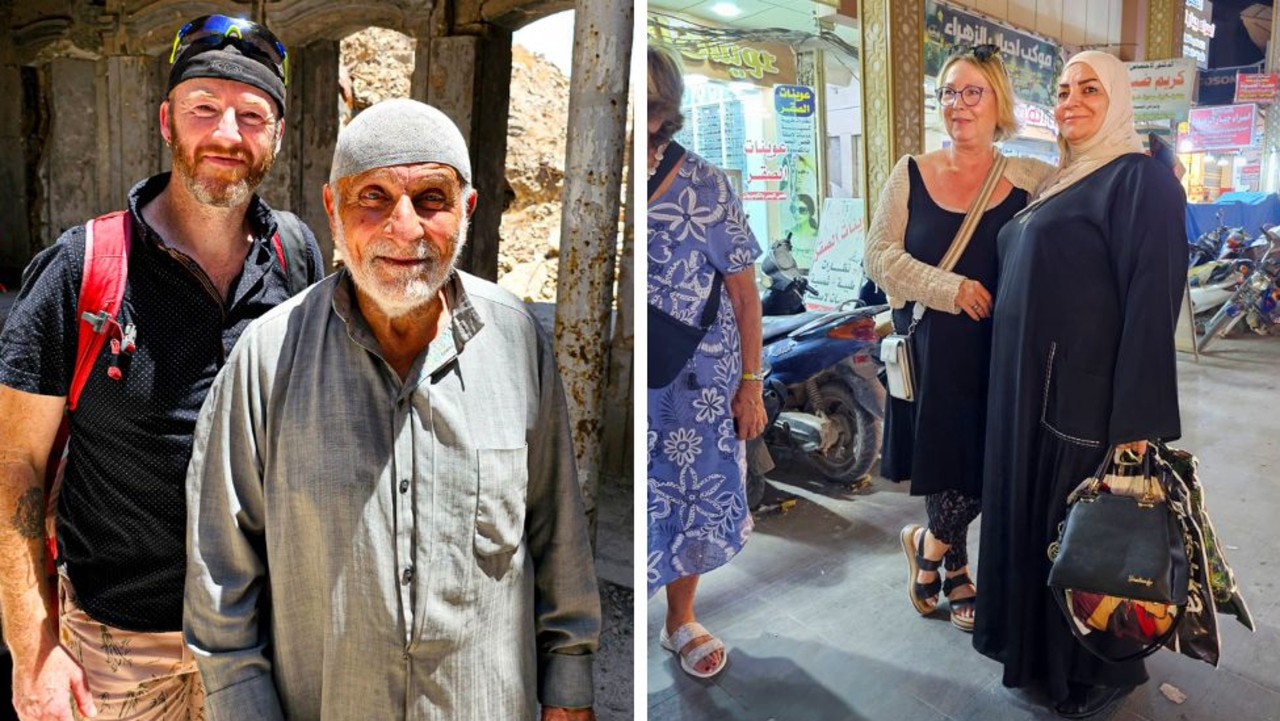Royal prehistoric city discovered in Turkey
THE lost city in Turkey dates back to the ninth century BC and is believed to be the burial place of royalty.

AN ANCIENT city in Turkey, which dates back to the prehistoric Iron Age Urartian Kingdom in the ninth century BC, has been discovered thanks to treasure hunters.
Turkish archaeologist and researcher, Ömer Faruk Kızılkaya, began excavations of the site, located in Turkey’s eastern Erzurum province, after being inspired by treasure hunters who were carrying out searches in the city’s Dumlu district, the Daily Sabah reports.
His investigation found rock tombs, temples, settlements and a water tunnel belonging to an ancient civilisation in the region.

Kızılkaya believes the rock tomb may belong to an ancient king, a senior figure or a religious figure.
“This is the place where the funeral ceremonies of kings or people, who are highly respected by the public, were performed. We think there is a tomb here that belongs to either a king, ruler, or religious man,” he said, according to the Hurriyet Daily News.
He has now applied to the local cultural and tourism directorate to declare the area a protected site.
“This is an important area belonging to ancient times, a place where a ritual was made. We see the rock tombs. This place should be taken under protection for detailed study,” the Daily Sabah quotes Kızılkaya.
Urartu was an Iron Age kingdom located near Lake Van and the mountainous plateau between Anatolia, Mesopotamia, the Iranian Plateau, and the Caucasus Mountains.
The kingdom was established around 860BC and was conquered around 590BC by the ancient Iranian people of Medes. Discovered ruins from the kingdom are already popular tourist attractions.
But this also isn’t the first time an ancient city has been discovered in Turkey, the home to one of the oldest permanently settled regions in the world.

The sunken ruins of ancient Simena, which was destroyed by earthquakes during the second century, lie just off the coast of the mainland’s Antalya Province.
After being closed off to visitors for three decades, the historical site is expected to bring in big tourist dollars with plans to now open it up to holiday-makers.
Underwater exploration has been banned since 1986 as part of a series of measures to protect the lost city’s heritage, but the Antalya Mayor wants to overturn the ban and open it up to a growing alternative tourism market.
“Not only Kekova, but all the coasts of Antalya are rich in terms of archaeology. Our efforts to diversify tourism alternatives have begun to bring results and interest in diving tourism has increased,” Mayor Münir KaraloÄŸlu told Turkish news publication, Hurriyet Daily News.



